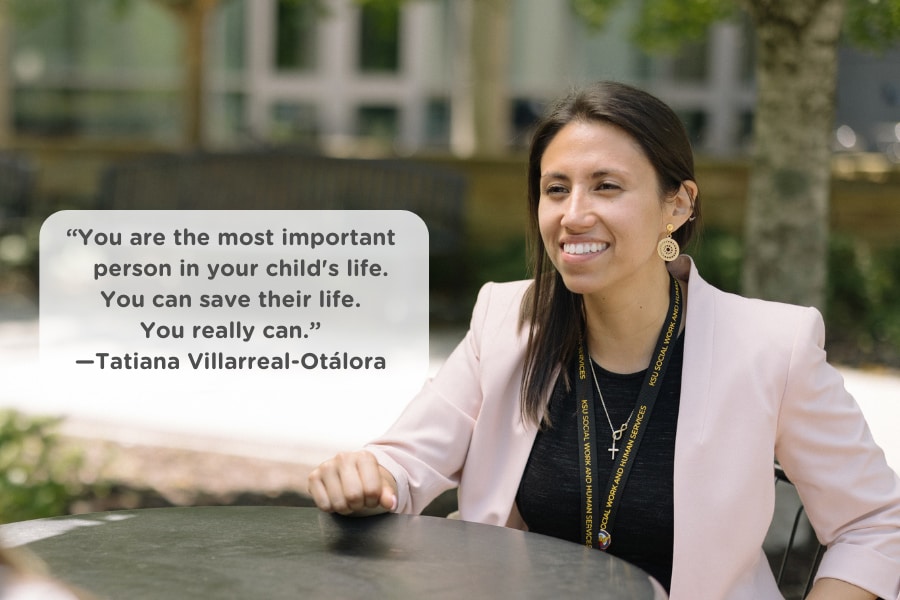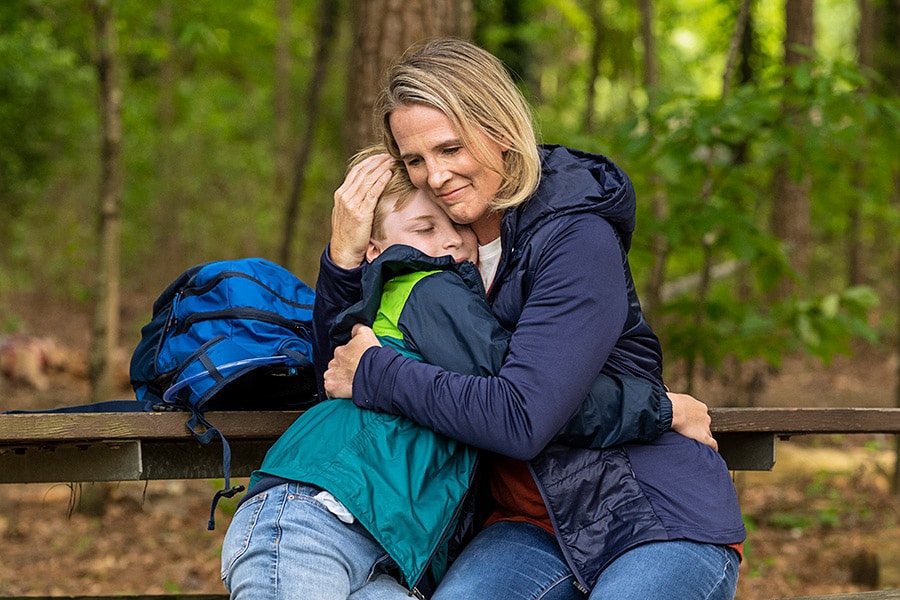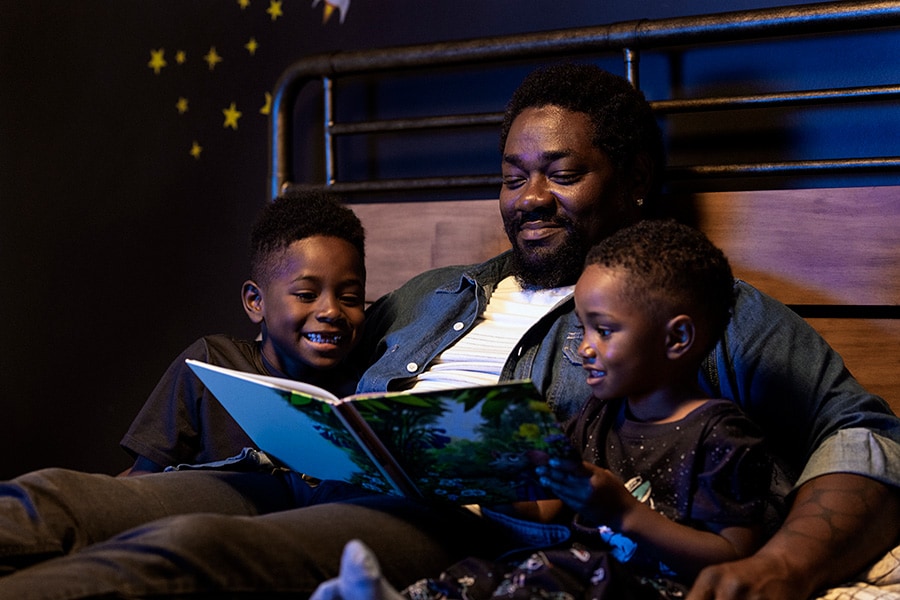Stories of Resilience: Tatiana Villarreal-Otálora
We’re sharing Tatiana Villarreal-Otálora’s deeply personal story as part of our Raising Resilience initiative, which equips parents and caregivers with tools to teach kids and teens how to cope with challenges, manage stress and ultimately make healthy choices throughout their lives.
Tatiana’s story of resilience
Tatiana Villarreal-Otálora, PhD, LCSW, grew up in the bustling city of Bogotá, Colombia, and in elementary school, she experienced a significant culture shock when her family moved to rural Georgia.
“I couldn't sleep for the first couple of months because I was used to the cars, ambulances, sometimes gunshots, all these different sounds, and I was hearing crickets at night. I was in a completely different universe,” said Tatiana.
Tatiana became her family’s translator, and she carried the heavy burden of adult responsibilities at an early age, leading to bottled-up anxiety and pressure to maintain a happy, well-adjusted image. This, combined with the traumatic experience of sexual assault in middle school, caused her mental health to spiral, culminating in a suicide attempt in high school. But Tatiana describes her experience in the hospital following her suicide attempt as a turning point in her life.
“I remember the fear and horror I saw in my parents' faces, and they had no guidance,” said Tatiana.
When she had to translate a family therapy session during her hospital stay, Tatiana was overwhelmed by the lack of support for Spanish-speaking families navigating their kids’ mental health crises. This motivated her to pursue a career dedicated to helping others in similar situations.
Now, as an assistant professor at Kennesaw State University, Tatiana is empowering Latino families with suicide-prevention skills. She emphasizes the importance of open communication, encouraging parents and caregivers to have daily conversations about feelings with their kids.
“The ultimate goal is for parents to be suicide prevention experts and to have a stronger, more vulnerable relationship with their children,” said Tatiana. “‘How have you been feeling today?’ ‘How does your mind feel?’ Those are all suicide-prevention communication skills because you're asking your child about how they're feeling on a daily basis.”
Through her work, Tatiana aims to reduce the stigma surrounding suicide in her community and strengthen the relationships between parents and their children, ultimately saving lives.

Ways to support kids’ mental health and prevent suicide
While experiences like Tatiana’s are all too common, there is hope. Suicide can be prevented, and there are things we can all do to support the kids in our lives:
- Teach kids—starting from birth—about feelings. We all have them, they’re all OK and normal, they’re temporary, and we can feel more than one feeling at a time.
- Encourage kids to talk about their feelings, rather than bottling them up, by asking direct, open-ended questions.
- Try to stay calm, actively listen and validate their feelings.
- Teach kids a variety of healthy coping skills.
- Reduce access to lethal items, like firearms and medications.
Any thoughts of suicide should be taken seriously. Call or text 988 if you or a loved one are experiencing thoughts of suicide or self-harm, or are experiencing any mental health crisis. You can also chat or text for support by downloading the MyGCAL app from the App Store.
To learn more about building resilience in kids, check out our Raising Resilience initiative.



